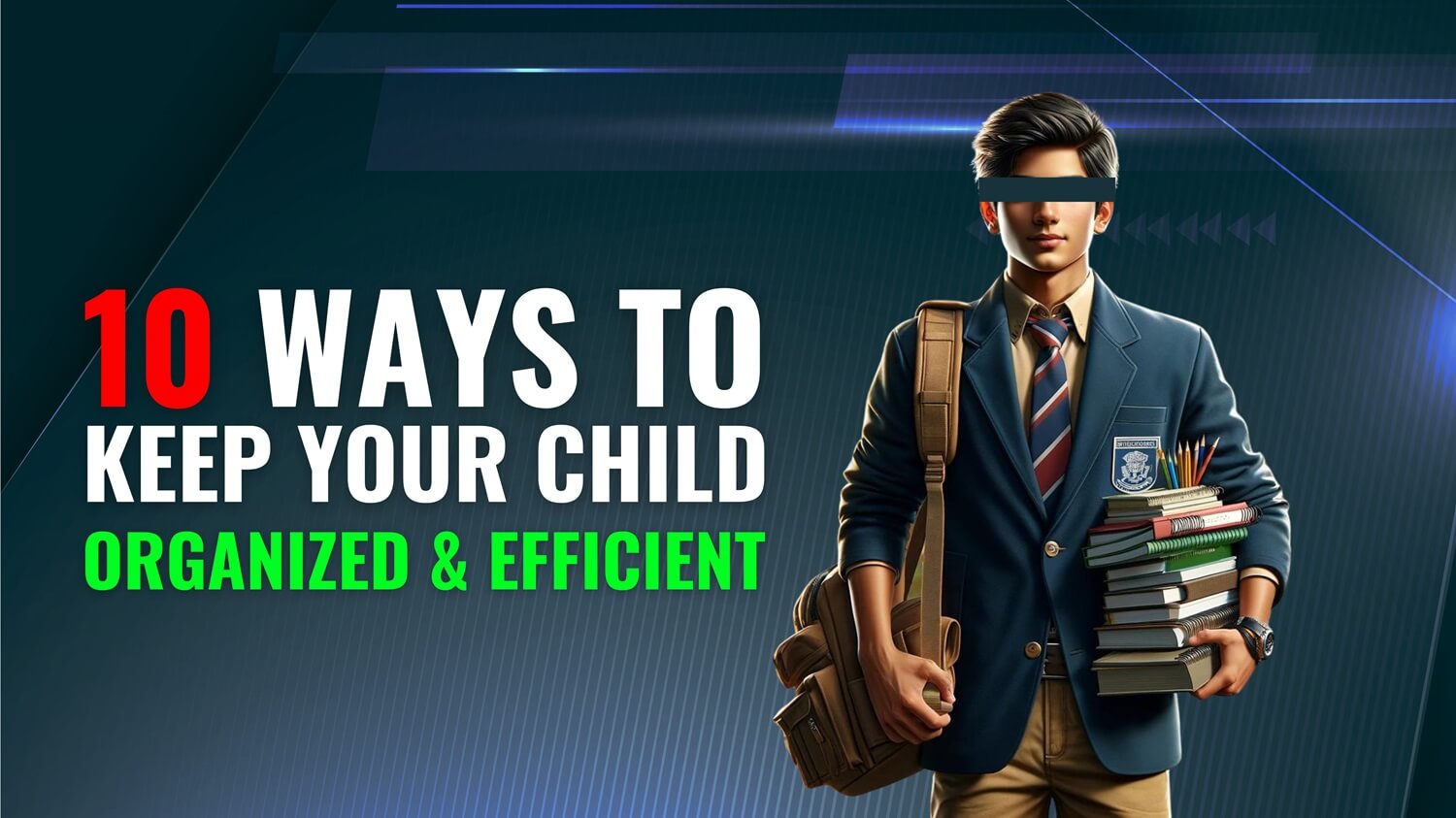10 Ways to Keep Your Child Organized and Efficient

Keeping your child organised and efficient can be a challenge, but it’s a skill that will benefit them throughout their lives. By instilling good habits early on, you can help your child feel confident in managing their time, belongings, and responsibilities.
Let us share with you 10 practical and positive strategies you can use to cultivate strong organisational skills in your child.
Establish a Routine and Use Checklists
Structure and predictability are key to fostering organisation. Create a daily routine that includes specific times for waking up, getting ready, attending school, completing homework, chores, and playtime. This routine will help your child know what to expect and feel a sense of control over their day. Complementing this routine with checklists for daily tasks or packing lists for school trips can further empower your child to manage their time and belongings effectively.
Establish a Designated Study Space
Having a dedicated space for studying, completing homework, or engaging in hobbies is crucial for nurturing focus and organisation. This workspace should be well-lit, uncluttered, and equipped with the necessary supplies. Encourage your child to keep their workspace organised by having designated storage solutions for books, notebooks, and other materials.
Tip: A designated study space should be a desk in a quiet corner of your house. Personalise with a comfortable chair, a bulletin board for reminders, and other stationery.
Teach Time Management Skills
Help your child understand the concept of time by introducing age-appropriate tools like timers and calendars. Break down larger tasks into smaller, more manageable steps and encourage them to estimate how long each step will take. This will help them develop a sense of time management and pace themselves throughout the day.
Example: Break down a homework assignment into steps such as “read the instructions,” “gather materials,” and “complete each question.”
Use Colour Coding
Colour coding can be a fun and effective way to help children visually categorise their belongings or information. Encourage your child to use different coloured folders for different subjects in school, coloured sticky notes to highlight important information in textbooks, or coloured labels to differentiate between personal and school items.
Teach Children to Clean Up After Themselves
Instilling the habit of cleaning up after oneself is crucial for maintaining organisation. Encourage your child to put away their toys after playtime, return books to their shelves after reading, and straighten their workspace after completing their homework. It not only promotes organisation but also instils a sense of responsibility and ownership over their belongings.
Encourage Children to Cultivate an Interest in Collections
Collecting items that spark your child’s interest can be surprisingly beneficial for developing organisational skills. It teaches them how to categorise and care for their belongings, and it encourages responsibility for keeping track of their collection.
Example: If your child loves dinosaurs, encourage them to collect different dinosaur figurines or models. Help them create a display area for their collection, labelling each item with the dinosaur’s name and any interesting facts they learn.
Foster Independence
While providing guidance and support is important, gradually grant your child more independence in managing their daily tasks and belongings. This could involve allowing them to pack their school bag or choose their outfit for the day. As your child demonstrates responsibility and competence, gradually increase their level of independence.
Tip: Start by allowing your child to choose one outfit option from two pre-selected choices. As they master this, gradually offer them more choices.
Limit Distractions
Minimise distractions when your child is doing their homework or studying. This could involve turning off the television, putting away electronic devices, and finding a quiet and comfortable space.
Example: Create a “homework zone” in your house where distractions are minimised. This could be a specific room or table, away from televisions, smartphones, and other tempting distractions.
Encourage Reflection
Self-reflection is a valuable skill that helps children evaluate their progress and identify areas for improvement. Regularly engage your child in conversations about their organisation strategies and routines.
Example: After completing a school project, have your child reflect on the process. Ask them what organisational strategies were helpful and what could be improved for future projects.
Model Organization as Your Behaviour
Children learn a great deal by observing the behaviour of adults around them. Be a role model for the organisation in your own life. Keep your personal space tidy, manage your time effectively, and prioritise daily tasks. Your child will be more likely to adopt organised habits if they see the value and benefits firsthand.
Consistency and positive reinforcement are key in helping your child learn and adopt these valuable habits. Celebrate their successes, offer support and encouragement when needed, and enjoy the journey of empowering your children to become more organised and confident individuals.
